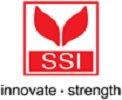
What is Egg Powder?
Egg powder is a dehydrated and shelf-stable form of whole eggs, egg yolks, or egg whites. To create egg powder, fresh eggs are first broken and separated into yolks and whites. These components are then spray-dried or freeze-dried to remove moisture, resulting in a fine powder.
This process preserves the nutritional content and flavor of the eggs while extending their shelf life. Egg powder is a convenient alternative to fresh eggs, widely used in various food products like baked goods, pasta, sauces, and desserts. It is popular in food industry applications where long shelf life, ease of storage, and transport are essential.

Advantage of Egg Powder
Using egg powder offers several advantages in comparison to fresh eggs:
- Long Shelf Life: Egg powder has a significantly longer shelf life than fresh eggs, making it a practical choice for stockpiling and reducing food waste.
- Convenience: Egg powder is easy to store and handle. It doesn’t require refrigeration, allowing for space and energy savings. Reconstituting it with water provides a quick and convenient alternative to cracking and separating fresh eggs.
- Food Safety: Egg powder is pasteurized during the drying process, which eliminates harmful bacteria like Salmonella, enhancing food safety and reducing the risk of foodborne illnesses.
- Consistency: Egg powder offers consistent quality in terms of taste, texture, and nutritional content, ensuring uniformity in recipes and food products.
- Versatility: It can be used in various culinary applications, from baking and cooking to making sauces and dressings, providing flexibility to food manufacturers and home cooks alike.
- Storage and Transport: Due to its lightweight and compact nature, egg powder is easier to transport and store in large quantities, making it ideal for commercial food production and emergency food supplies.
- Nutritional Value: Egg powder retains the essential nutrients found in fresh eggs, including proteins, vitamins, and minerals, making it a nutritious ingredient in various dishes.
- Economic Benefits: Egg powder can be more cost-effective, especially in regions where fresh eggs are expensive or difficult to obtain consistently.
- Extended Availability: Egg powder ensures a stable supply of eggs throughout the year, regardless of seasonal fluctuations in egg production.
- Reduced Allergen Risk: Some people are allergic to specific proteins in fresh eggs. Egg powder allows for precise control over the egg content, potentially reducing the risk of allergic reactions in sensitive individuals.
Scope of Egg Powder Business in India
The egg powder business in India has a significant potential for growth due to various factors:
- Convenience and Shelf Life: Egg powder offers convenience and extended shelf life, making it a popular choice for bakeries, food processors, and households. As more people look for convenient cooking solutions, the demand for egg powder is likely to rise.
- Food Processing Industry: India’s food processing industry is expanding rapidly. Egg powder is a valuable ingredient in bakery products, pasta, noodles, and confectioneries. With the growth of this sector, the demand for egg powder as a raw material is expected to increase.
- Nutritional Value: Egg powder is a rich source of protein and other essential nutrients. With the growing focus on health and nutrition, there is a rising demand for products that incorporate high-quality protein, further boosting the market for egg powder.
- Export Potential: India has the potential to export egg powder to other countries, capitalizing on the demand in international markets. Meeting international quality standards can open up opportunities for Indian egg powder manufacturers in the global market.
- Poultry Industry Growth: India’s poultry industry is one of the fastest-growing sectors. As the poultry industry expands, there will be a consistent supply of raw materials for egg powder production, ensuring a stable production base.
- Diverse Culinary Applications: Egg powder is versatile and used in a wide range of food products. From processed foods to culinary applications in hotels and restaurants, the scope for egg powder usage is diverse, catering to various consumer needs.
- Government Initiatives: Government initiatives promoting food processing and agribusiness sectors provide support to entrepreneurs and investors. Subsidies, technical assistance, and training programs can facilitate the establishment and growth of egg powder businesses.
- Rise in Foodservice Industry: The growth of the foodservice industry, including restaurants, fast-food chains, and catering businesses, creates a demand for convenient and easy-to-use ingredients like egg powder.
- Health-Conscious Consumer Base: As consumers become more health-conscious, there is an increasing demand for products made from natural ingredients. Egg powder, being a natural product without additives, aligns with this trend, making it a sought-after choice.
- Research and Development: Ongoing research and development efforts can lead to the creation of innovative egg powder-based products, expanding the market and attracting more consumers.
Entrepreneurs entering the egg powder business in India should focus on quality, food safety standards, and innovation to tap into this growing market successfully. Conducting a detailed market analysis and understanding consumer preferences can further enhance the scope and profitability of the business.
Manufacturing Process
The making of egg powder involves several steps to dehydrate fresh eggs while preserving their nutritional value. Here is an overview of the typical process:
- Breaking and Separation: Fresh eggs are broken, and the yolks and whites are separated. This step ensures that each component can be processed separately or together, depending on the desired end product (whole egg powder, egg yolk powder, or egg white powder).
- Filtering: The separated egg yolks and whites are filtered to remove any impurities or shell particles.
- Pasteurization: The filtered egg yolks and whites are pasteurized to kill harmful bacteria, ensuring food safety.
- Mixing (Optional): If producing whole egg powder, the pasteurized yolks and whites can be mixed together in specific ratios to create a homogeneous mixture.
- Drying: The pasteurized and, if necessary, mixed egg solution is then dried. There are two common methods used for drying:
- Spray Drying: In this method, the egg mixture is sprayed into a hot drying chamber. The fine droplets quickly lose moisture, forming small powder particles. The hot air used in this process aids in rapid dehydration.
- Freeze Drying: This process involves freezing the egg mixture and then placing it in a vacuum chamber. Under reduced pressure, the frozen water in the mixture sublimates directly from ice to vapor, leaving behind freeze-dried egg powder.
- Grinding (Optional): After drying, the egg powder may go through a grinding process to achieve a finer and more uniform texture, especially if clumps have formed during drying.
- Packaging: The egg powder is then packaged in airtight containers to prevent moisture absorption and maintain its quality. Proper packaging also extends its shelf life.
Throughout these steps, it’s crucial to maintain strict hygiene and quality control standards to ensure the safety and consistency of the final egg powder product.
Plant and Machinery for Egg Powder Plant
Setting up an egg powder plant requires specialized machinery to ensure efficient processing. Essential equipment includes an egg-breaking machine for separating yolks and whites, pasteurization equipment for food safety, and a spray dryer or freeze dryer for dehydration. A grinding machine might be necessary for achieving a fine powder texture. Additionally, packaging machinery like filling and sealing machines, along with quality control tools such as metal detectors and weighing scales, are vital. Proper storage facilities, including silos for raw eggs and finished powder, are also essential. Investing in modern, energy-efficient machinery enhances production capacity, quality, and overall efficiency of the egg powder plant.
Raw Material
The primary raw material for an egg powder plant is fresh eggs. These eggs are sourced from poultry farms and undergo a series of processes, including breaking, separation into yolks and whites, and pasteurization, before being dehydrated using spray drying or freeze drying methods. The resulting egg powder is then processed, packed, and distributed for commercial and consumer use in various food applications.
Land and Building
For smooth operation of the unit, it will require 800 sq. mts of open land and a built up area of 500 sq. mts.
Manpower
For smooth functioning of the unit the requirement of manpower is expected to be around 10 – 15 persons including skilled, semi skilled, helper and Machine operator.
Many people intend to launch a manufacturing company, but not many of them are aware of the business options that are open to them. For example, there are numerous options to launch a very profitable manufacturing firm using egg powder.
This is because goods containing egg powder are becoming more and more popular in the culinary business. Fill out the form below if you’re interested in launching a business with egg powder or if you’re just curious about the business options that are open to you.
Who are we?
NPCS is a well-known name in the field of engineering and industrial consulting. The company offers a wide range of services, from project reports to startup business plans and concept submissions. NPCS is also a leading provider of books and project reports on a variety of topics.
Reasons for Buying NIIR Report
- Our research report helps you get a detailed picture of the industry by providing an overview of the industry along with the market structure and classification.
- Our report provides market analysis covering major growth driving factors for the industry, the latest market trends and the regulatory framework of the industry.
- Our Report provides an analysis and in-depth financial comparison of major Players / Competitors.
- Our Report provides indispensable buyers’ data with their company financials as well as the contact details, which can be an important tool in identifying the target customers.
- Our report provides forecasts of key parameters which help to anticipate the industry performance.
- We use reliable sources of information and databases. And information from such sources is processed by us and included in the report.
Our personalized project report covers all aspects of the egg powder manufacturing industry.
- Performance of the whole egg powder market & expected growth in the upcoming years
- Market segmentation of in global market
- Price trends of various feedstocks in the whole egg powder industry
- Structure of the whole egg powder business
- Different unit operations involved in the manufacturing of egg powder
- Land & building requirements required for egg powder manufacturing plant
- Layout of a whole egg powder manufacturing plant
- Raw material requirements
- Packaging requirements
- Transportation requirements
- Utility requirements for establishing
- Human resource requirements
- Infrastructure costs
- Capital costs involved in setting up
- Operating costs associated with establishing a egg powder manufacturing plant.
- Pricing mechanism for the final product
- Income and expenditures
- Timeframe required to achieve the break-even point
- Key factors for success and risks factors
- Essential regulatory procedures and requirements
- Necessary certifications required



















